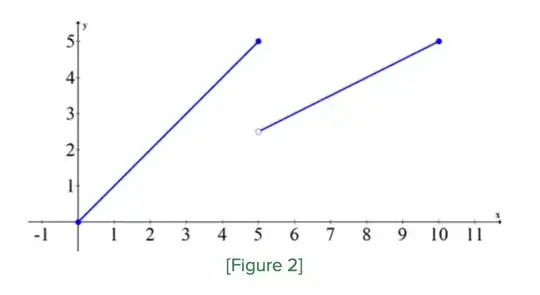A corollary to Theorem 5.12 (Darboux's theorem) in Rudin's PMA is
if $f$ is differentiable on $[a,b]$, then $f'$ cannot have any simple discontinuities on $[a,b]$.
He defines simple discontinuities as follows:
$f$ has a simple discontinuity at $x$ if the right-hand and left-hand limits both exist at $x$.
Rudin does not provide proof. Is this corollary true because any functions with the IVP cannot have simple discontinuities, and not because of other properties of $f'$?
In that case, how about the following function?
If this function is not a counterexample for the converse of the IVT, why is that? Does a function have to have the IVP on every possible open interval in the domain to be considered as a counterexample for the converse of the IVT? That is what I am guessing because I see functions like $f(x)=\sin(1/x)$ for $x\neq 0$ and $f(0)=0$ being used as a counterexample, whose discontinuity at $x=0$ is not a simple discontinuity.
